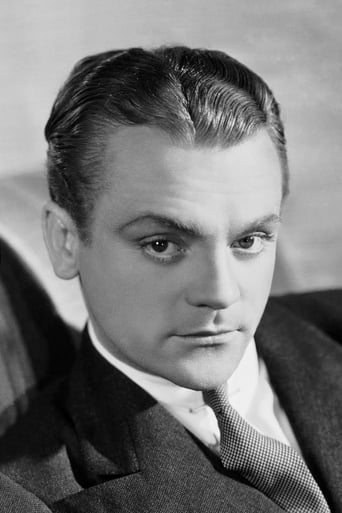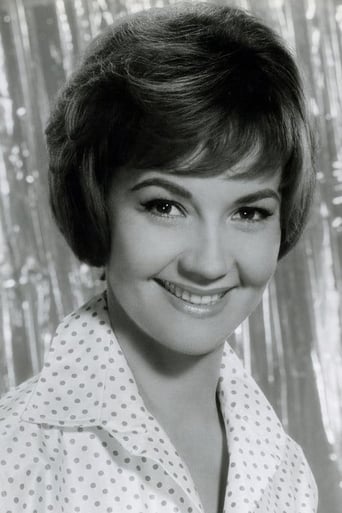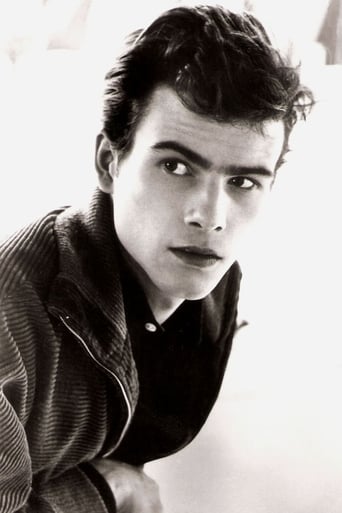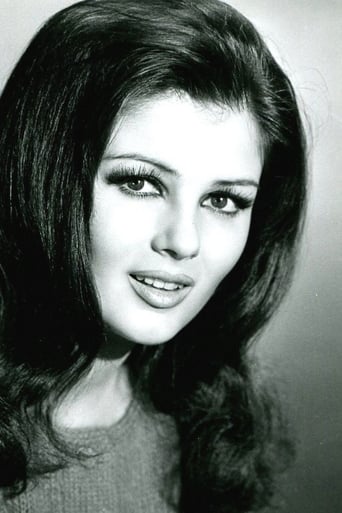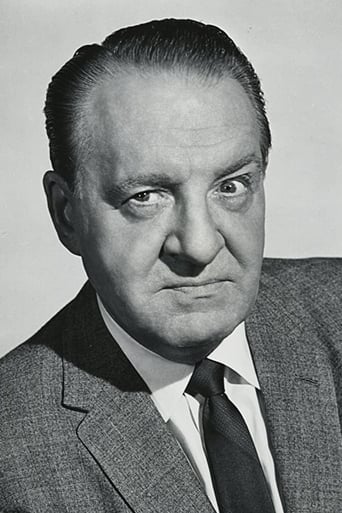Diagonaldi
Very well executed
ReaderKenka
Let's be realistic.
Glucedee
It's hard to see any effort in the film. There's no comedy to speak of, no real drama and, worst of all.
Livestonth
I am only giving this movie a 1 for the great cast, though I can't imagine what any of them were thinking. This movie was horrible
SnoopyStyle
C.R. 'Mac' MacNamara (James Cagney) is a Coca-Cola exec in charge of the West Berlin operations. Tension is rising across the Iron Curtain. It's a little over a year before the start of the Berlin Wall. He's trying to introduce Coke to the East. The communists want the secret formula. There is his sexy secretary Fräulein Ingeborg. His wife wants a quiet life in Atlanta. His boss dismisses expanding into Russia and asks Mac to care for his clueless party-girl daughter Scarlett Hazeltine.The talk is fast-paced. The humor is broad and full of Wilder wordplay. Cagney is an unrelenting engine. He is buzzing with energy and I half-expected him to explode in song and dance. The machine gun dialog is non-stop and can get tiring at some point. This is a feat of performance from the great Cagney.
popcorninhell
Remember when there were imminent nuclear attack drills in school? The alarm would sound and students were instructed to crawl underneath their school desks as if the flimsy plastic top and tin would protect them from a nuclear explosion. Yes the threat of Soviet annihilation was a very real thing back then and the dichotomy of the Cold War informed the world-views of baby-boomers and generation x'ers for decades to follow. Thankfully I was not part of either generation yet having lived on both sides of the east/west divide I can tell you that despite the severity of 1960's evening news telecasts, the standoff is hilarious in retrospect.The hilarity was evident as far back as 1961 when Billy Wilder's One, Two Three hit theaters. Starring James Cagney as a fast-talking Coca-Cola executive, the movie was sly, witty and light as air, masking a cynical and subversive world-view taking the ideologies of the USA and USSR to task. Cagney plays C.R. MacNamara, a dependable company man who is asked to take care of the CEO's daughter Scarlet (Pamela Tiffin) while she's in West Berlin. His wife (Arlene Francis) was looking forward to a vacation in Venice with the kids while his secretary (Liselotte Pulver) was hoping to teach him the sultry phonetics of the umlaut. Naturally no one is happy with the imposition. Things spiral out of control when the seventeen-year-old southern belle falls in love and marries an East Berlin Bolshevik (Horst Buchholz) all while the CEO (Howard St. John) comes in for a surprise visit to pickup his sweet little angel.The screenplay written by Billy Wilder and I.A.L. Diamond based on a Ferenc Molnar play has enough gags to go toe to toe with today's joke a minute youtube generation. Even without prior knowledge of the Cold War, the movie is one heck of a ride featuring, among other things, a high speed chase with a disintegrating Russian car, a constantly heal-clicking lackey who may or may not have been an SS member and the old staple; a man wearing women's clothing. Those who do know their 20th century history will be further rewarded with coy references to Khrushchev, Tito and Yuri Gagarin not to mention the adversarial tones of Cagney's character and the Russians he deals with. "He could use a hair cut…and I'd like to give it to him myself with a hammer and sickle," says MacNamara to the débutante's new liebchen.The characters are exactly what you would expect from a fast-paced farce; broadly drawn and exaggerated by a single feature or fault. Buchholz's Otto is an overzealous card-carrying Red, bloviating about Coca-Cola colonialism and dead herring in the moonlight. Scarlet is so overwhelmingly dense to the point of annoyance, at one point musing "did you know Otto spelled backwards is Otto?". Meanwhile the trio of Russian dignitaries who complicates MacNamara's plans remind me of an old Russian joke: why do Russians walk around in sets of three? One reads, one writes and the third keeps an eye on the other two intellectuals. If you're looking for anything more than stock characters causing havoc in post-war Berlin, you may be setting your standards unrealistically high.I have a real affinity for Billy Wilder and his directorial efforts to which One, Two, Three is a splendid addition to my Seen It list. Like The Apartment (1960), One, Two, Three achieves wonders with its cast; like Ace in the Hole (1951) it has the propensity to be cynical yet charming and like Some Like It Hot (1959), One, Two, Three is gut-bustlingly hilarious.http://www.theyservepopcorninhell.blogspot.com
krautR-930-608582
As usual,I don't want to write much about the story of this movie,because others have done that more than enough.The title of this movie-"one,two,three"-reminds you (surely not accidental) of military and let's you assume that this movie has a brisk tempo.After having watched this movie you will know that this assumption was fully justified! James Cagney is playing the choleric manager McNamara outstandingly.His play strongly reminds me of the French actor Louis de Funes,who played choleric characters so often and so convincingly.Also the other characters give a very good performance.The ever-obedient and submissive Schlemmer (Hans Lothar),the fanatic East German communist Otto Piffl (Horst Buchholz),Mc Namaras sexy secretary Fraulein Ingeborg (Liselotte Pulver),Mc Namaras sarcastic wife Phyllis (Arlene Francis),the members of the Soviet delegation...Yes,and also Pamela Tiffin.She played the "silly goose" Scarlett Hezeltine (the daughter of McNamaras boss in Atlanta),and she played her convincingly.Yes,some might not like this character,but that only proves that convincing play.I read that in the original English version she speaks with a deep southern accent,which,I presume,shall underline her character as a silly goose.Maybe that's why some people don't like Pamela Tiffin in this movie.But that's an internal matter of the U.S.I should say that in the German version of "one,two,three" the East German policemen speak with a Saxonian dialect,although the whole story takes place in Berlin and the policemen would be likely to speak the local dialect "Berlinerisch".Their Saxon dialect is a clear allusion to Walter Ulbricht,the East German political leader at that time,who spoke with a strong Saxon dialect.What concerns the national stereotypes in this movie: Yes,they are rather dumb for today.By the way,when laughing about the German's obedience in this movie you should be aware that West-Berlin (as well as East Berlin,of course) until 1990 was,different from West-Germany,a pure military regime,where,in principle,the allied commanders had nearly absolute power and the right to decide about everything (in practise the only did it if they saw a need,of course): Who had the right to enter West-Berlin,whether a hill could be used for military purposes etc. McNamaras reaction to the refusal of the West Berlin senate allowing a coca-cola vending machine in their building is an allusion to that...But don't forget that this movie is from 1961 and at that time the end of the war was only 16 and "Stalins" death only 8 years ago! And don't forget Billy Wilders personal biography.And don't forget,how,for example,South eastern Asians were portrayed in Hollywood at that time (Oh,God...)And especially-don't forget that this movie was made during the cold war.During the making of "one,two,three" unfortunately the Berlin Wall was erected (the movie mentions that at the beginning) This and all the ensuing personal tragedies surely didn't help promote this movie,and the dangerous showdown between U.S. tanks and Soviet tanks at the newly erected wall two months later eroded the interest in a parody of the cold war.To expect the people in Germany (and elsewhere) to laugh about "one,two,three" at the time the movie was released (end of 1961) is like to expect people in the U.S. and elsewhere laugh about a movie making jokes of Islamist terrorism at the end of 2001,shortly after 9/11.And don't forget,the horrific Cuban crisis was approaching in 1962.That's the reason,why "one,two,three" is not timeless.I think it's really difficult for younger people putting themselves into its atmosphere,to understand its countless allusions etc. without having experienced the cold war.At least you should have some basic knowledge about the political situation at that time,especially the one in Berlin.
Ilpo Hirvonen
Billy Wilder is well-known of his comedies and his satire, which usually strikes to Soviet Union's communism, western capitalism, materialism.. And the only right ideology to Wilder is humanism, which he seems to be telling to us through many of his movies.First this movie became a flop, because it was banned until the Berlin Wall collapsed. And after that people didn't find the subject very amusing anymore. What I know is that this movie was banned in many countries for years. Reasons in the eastern Europe were mostly that it was too anti-soviet.And the reason what makes this movie so great, and most pictures by Wilder. Is that the movie has a great message, Wilder's satire is brilliant, good casting, good writing and the film's basis is strong.This movie is like a non-stop laughter. It just keeps going on and on. As someone already said here, there's just a great line after another. I also think this is James Cagney's best performance.I just can't tell how great this is by words; Delightful, funny, political, serious, crazy! Actually that's what this movie is, crazy, everything seems incredibly absurd in this picture and I think that's the way for Wilder to deal with this issue.Highly recommended to everyone!



